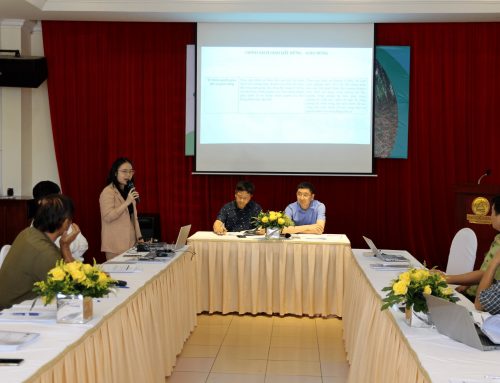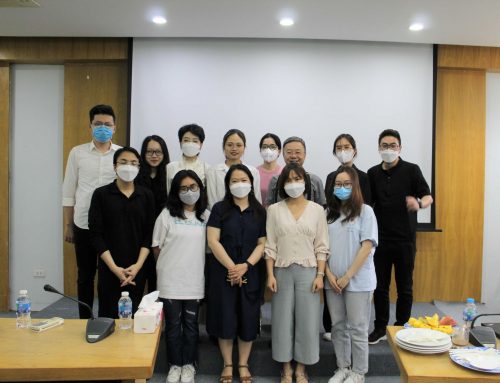Lai Chau, December 9th, 2016 – CISDOMA and the partner Aide et Action Vietnam has launched an initiative on the supplementary materials in Mong and Vietnamese languages for preschool and primary school (5 years old – 8 years old) in Tam Duong district, Lai Chau province. The Mother-Tongue Bilingual Based Education (MTBBE) approach uses Mong as the bilingual language of instruction, along with Vietnamese. The materials cover 5 topics: gender equality, life skills, disaster preparedness, child rights, local culture and customs which will be mainstreamed into the daily classes at school. The development of the supplementary bilingual material is one of the key activities of the project “Promoting inclusive and relevant early childhood care and education for ethnic minority and disadvantaged children in Vietnam,” funded by the European Union, aiming at helping ethnic minority children overcomes the language barrier and enabling them to read and write in their mother tongue to preserve their culture first, and then transfer these skills to learning Vietnamese.
The launch is attended by representatives from Tam Duong District People’s Committee, different departments of Tam Duong district, and the media.
“Mother-Tongue Bilingual Based Education is internationally proven to be effective mechanism to support ethnic minority’s early childhood education. The introduction of bilingual education, as widely known, would enhance equitable access to education for children from ethnic minorities, many of who have not been able to attend school or drop out of school. Promoting bilingual education would also improve the integration of ethnic minority into the society as well as preserving and maintaining their traditional culture and identity. I’m glad to learn that great effort of introducing and implementing of bilingual education for the young students has been carrying out in Tam Duong, Lai Chau province, under the project financed by European Union,” said Ambassador – Head of the EU Delegation to Vietnam, H.E.Mr. Bruno Angelet.
Language barrier has been a noticeable disadvantage for ethnic children in studying and socializing, contributes to their poor school performance, high school dropout rates, limits their access to learn other lifelong knowledge and skills and hence, limits opportunities throughout their lives. Vietnamese is the official language of instruction at schools and this has created a language barrier for many ethnic minority children who cannot participate confidently in active learning and fall behind children from the majority Kinh people. As a result, the primary school completion rate for ethnic minority children is significantly lower than the corresponding rate for Kinh students.
“Development of teaching and learning materials has been a significant challenge, due to the shortage of skilled writers who can develop materials for MTBBE. In addition, the production of quality materials that illustrate and reflect culture is time-consuming. However, thanks to the close collaboration with the Department of Education and Training, teachers, local community, the 5 set of materials produced are of good quality. I really hope to receive continuous support from the local authorities so that the roll-out and implementation of the materials will be mainstreamed into the formal curriculum very soon,” said Mr. Eric Ouannes, General Director, Aide et Action International.
The material set consists of 55 short fiction stories written by local teachers from pre-schools and elementary schools in Tam Duong district and translated in Mong language by a local expert. Those stories reflect truly what happens in the daily life of Mong children and Mong community. “In the context of over 90% of local students are ethnic minorities, mainly Mong, the development of bilingual supplementary materials for students for age 5-8 years old is a valuable solution. The materials not only help children improve Vietnamese language as the official language in Vietnam, but also to improve significant knowledge and life skills. Besides, the document also helps them to nurture, preserve, and promote their cultural identity and language. We also appreciate the way in which the project was carried out through a harmonious collaboration between academic experts and communities and indigenous intellectuals,” said Madam. Tan My Khe – Vice Director, Department of Education and Training, Lai Chau Province.




